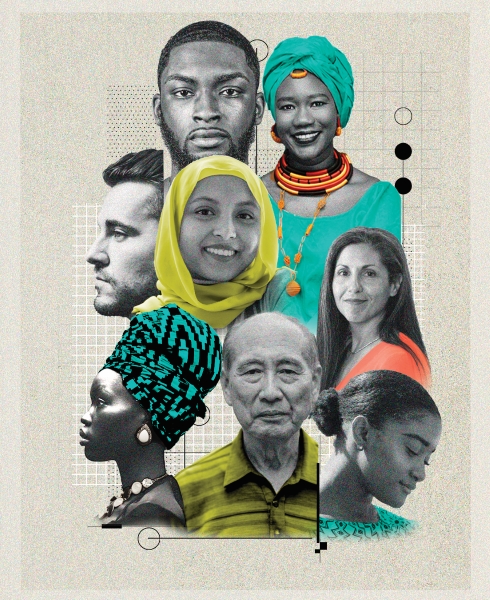Cultivating Cultural Humility
June 07, 2023 Giordana Segneri
The director of UMSON’s Office of Global Health offers recommendations for providers to expand cultural humility and mitigate bias.
Cultural humility, as opposed to cultural competence, moves beyond working respectfully with people from diverse cultures to recognizing one’s own biases and limitations and actively working to avoid making assumptions that can cause harm to others. “Traditionally, a lot of us have been taught that you can study other cultures or people and become ‘competent’ in caring for them,” says B. Elias Snyder, MS ’14, FNP-C, ACHPN, clinical instructor and director of UMSON’s Office of Global Health. “But you can’t really become competent in a culture other than your own. In response, the movement for cultural humility says, ‘Let’s approach people from other cultures with respect, appreciation, and genuine curiosity.’” He underscores that it may be uncomfortable and take effort to
say, “I don’t know, but I’m curious.”
Part of this work is recognizing our biases in order to address them. “Internal biases are things that we may not be aware of that inform
how we react to other people or situations,” he says. “When you don’t take the time to recognize a bias, you can perpetuate harm to others. Both inner work and outer work are required. Inner work is learning about yourself, your biases, and being comfortable getting feedback. Outer work is trying to move beyond that bias and make a positive impact.”
Snyder has spent several years living in East Africa working on various health care projects and returns to Tanzania annually to continue his work. He specializes in palliative care and hospice. He offers these recommendations for providers to expand cultural humility and mitigate bias:
1. Do foundational learning.
“If you have a particular community you work with, organize a group of employees and community members for a book club or intentional discussion about cultural practices,” Snyder suggests. This is important, he says, “because it can be burdensome for somebody to constantly explain themselves. There has to be an element of self-learning and independently doing the work.”
2. Get to know your biases – but be gentle with yourself.
“We all have bias, whether we realize it or not,” Snyder says. “The idea is to approach it really gently with ourselves as opposed to denying it or being very rigid in an attempt to fix it.” He says the important aspect of this is to recognize the biased thinking, work on mitigating it, and consider the process a growth opportunity.
3. Cultivate friendships with people.
But make sure these people include those who are different from you. Forming close friendships with different people makes it easier to learn and make mistakes. “Even having coffee with a friend can be a learning opportunity,” Snyder says. “You don’t need to attend a conference or webinar to learn about culture; just make it part of your everyday life.”
4. Open the lines of communication.
“There has to be genuine curiosity, appreciation, and respect, and those things can be cultivated,” he says. “It can be as simple as saying, ‘I want to make sure we give you the best care. This is really important to me, so please tell me how I can best support you and make this experience better.’” He indicates that initiating this conversation normalizes the fact that everyone has unique needs and experiences and alleviates the patient’s burden of having to initiate the conversation.